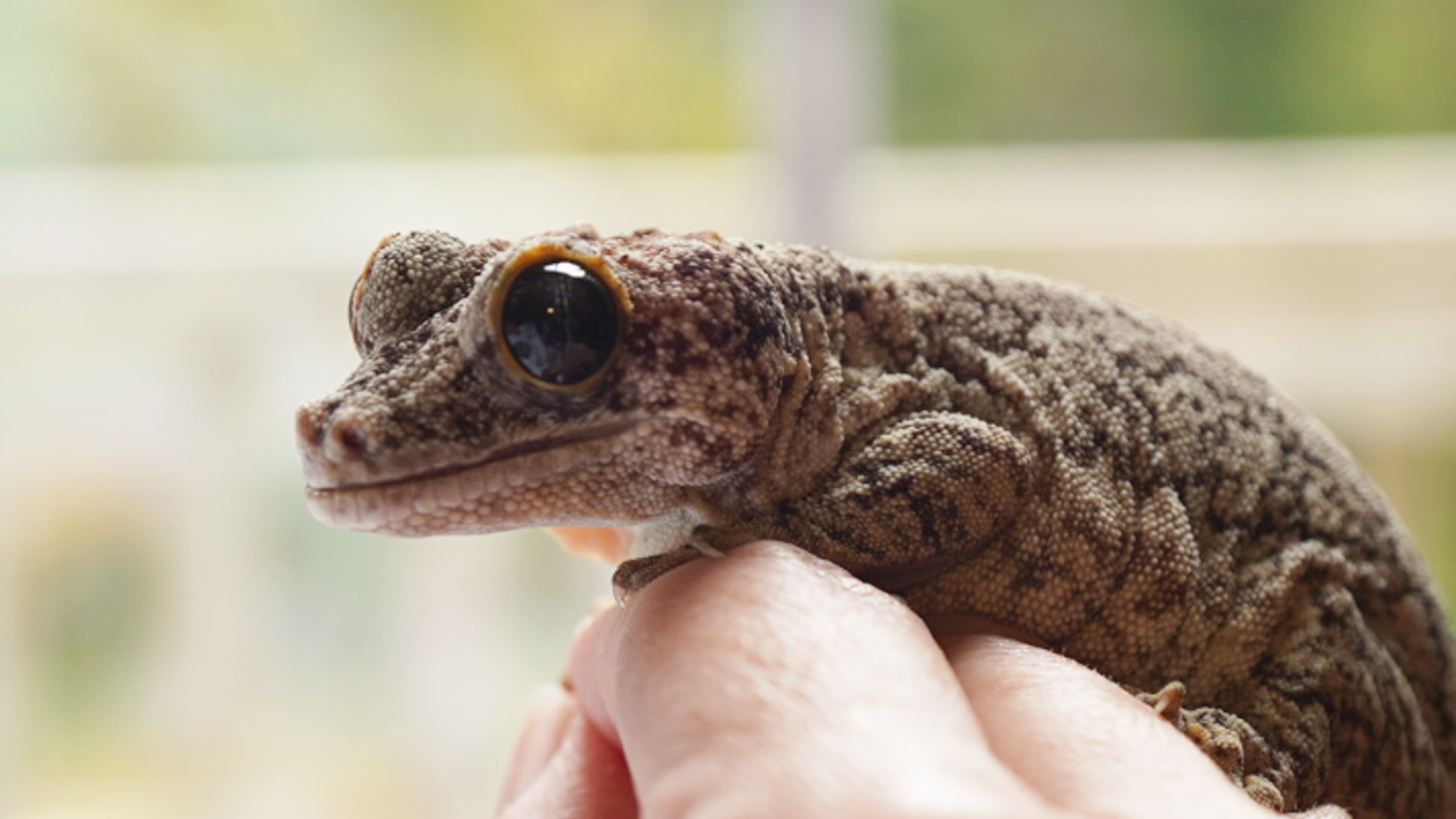
Talking reptiles with 2023 GVMA President, Dr. Elizabeth Mackey
This past weekend at VetSouth, Dr. Elizabeth Mackey was installed as the 2023 GVMA President. Although Reptile Awareness Day was last week, we sat down to ask Dr. Mackey some questions about her upcoming term as President and the importance of veterinary care for our reptile friends.
Q: Where did you receive your veterinary training?
Dr. Mackey: I got my BS in Biology at the University of SC in 1986. Went on to get my DVM at the UGA College of Veterinary Medicine in 2006. In 2008, I completed my Wildlife and Zoological Animal Internship at UGA.
Q: Can reptile owners have the same relationship and bond as owners of dogs, cats, horses, etc.?
Dr. Mackey: Absolutely! Some reptiles will actively interact with their owners and seek their attention. Others don’t. But either way, an owner can become just as emotionally connected to that animal. One of my red-foot tortoises comes when he is called and he loves his chin rubs. My chameleon- nope! But I still love her!
Q: How does a veterinary student or associate become a reptile veterinarian? Are there groups or associations in which to get involved?
Dr. Mackey: Veterinary schools often have programs that provide the basics of reptile medicine, but most times you will have to take the initiative to learn reptile medicine on your own. The Association of Reptiles and Amphibian Veterinarians is a great organization to join, with care sheets, member Facebook groups and an excellent annual conference that is in conjunction with other veterinary exotic animal organizations (ARAV, ExoticsCon). I recommend having some reptiles of your own- they will teach you subtleties you would never get from a book! You can also volunteer with reptile rescue groups to get some practical hands-on experience. And if reptiles are your passion, you can specialize, and become a reptile and amphibian diplomate.
Q: What is your most embarrassing moment in vet med?
Dr. Mackey: There are so many! Had an owner drop off a group of snakes for exams and wanted to know if they were boys or girls. When he picked them up, I went over the findings of their exams and told him we had sexed them. His look of horror as he questioned, “You did WHAT to my snake?!” was kind of priceless. I realized he didn’t know the phrase “sexing an animal”. When I started explaining what we do with a probe, it just made things worse!
Q: What are you most excited about when you become GVMA President?
Dr. Mackey: I am already so excited just being a part of this organization! I really want members to feel like they are a part of GVMA, and that their voice matters. The opportunity to facilitate conversations with our members and bring their ideas forward- I can’t wait!
Q: Why did you want to become involved with organized vet med in the first place?
Dr. Mackey: When I became a veterinarian and saw the positive things GVMA did for us, I wanted to be a part of that! I have always been involved with other organizations and can fully appreciate the value and power of volunteers. We can make a difference! What better group than one that supports my veterinary colleagues in my own state?
Q: Which would you rather face? 100 goose-sized horses or one horse-sized goose?
Dr. Mackey: No question- I’ll take the horses! I can just see this herd of mini-mini’s hanging out in a pasture together! But a huge goose? No way!! I’ve tangled with some angry ones in my day, and the standard size is more than enough!!

Do reptiles need vets, too?
Dr. Mackey says yes!
“Absolutely! Regular veterinary care is the best way to help your pet live a long, healthy life. Your veterinarian can work with you to make sure you have the proper husbandry. This includes things like the type of substrate in the cage, special lighting, temperature and humidity requirements. The proper diet and supplements are also important for maintaining good health. Your reptile veterinarian knows which health problems are commonly seen in the different species, and can work with you on recognizing signs of illness.
Reptiles, like other living things, can have injuries, parasites, cancers and other health problems. Many problems can be prevented, but not always. The best chance for treatment of a problem is to prevent it or catch it early. So, when should you take them in? Definitely when you have a new pet, and before you have it near any other reptiles you may own, as it may have a disease or a parasite that could be contagious to your other pets. Anytime something seems “off”, take them in. Reptiles can be good at hiding their problems, so if you see a change in normal behavior or eating habits, it is worth a visit. Generally, exams are recommended on an annual basis, but you and your veterinarian can determine the best schedule for your pet.
During the exam the veterinarian will weigh the pet and ask you questions about his activity levels, diet, and husbandry. They will examine the entire animal, just like your dog and cat veterinarian, including looking in the eyes and mouth and palpating along the body. Based on the exam and history, recommendations might include tests like fecal analysis, bloodwork, radiographs, or changes in the husbandry at home. Your love your pets and want to do the best for them, and your veterinarian is there to help you!”